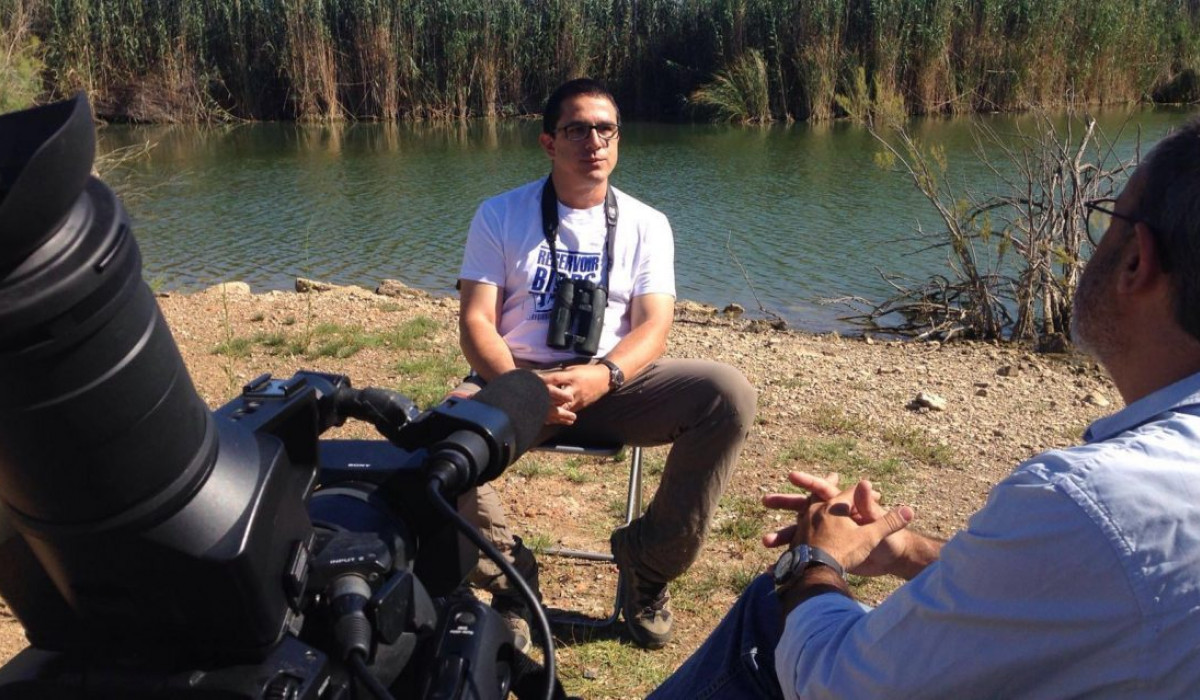From challenge to passion
Carles Canet, director of the documentary "Heparin: 100 years saving lives"

When someone asks you to direct a new documentary, I suppose the first thing you feel is very similar to a writer experiencing ‘blank page syndrome’. In our case, it was more like ‘blank screen syndrome’. How do we explain, in simple terms, that a hundred-year-old biomolecule saves more than a hundred million lives a year? How can we use images to transmit, in an interesting way, the importance and development of heparin over the last hundred years? How can we make something audiovisually comprehensible which is so small that we can’t see it, but which yesterday, today or tomorrow could save any one of our lives? It’s taken months of research, trying to understand and a great deal of reading, and complete immersion in the medical, clinical and industrial manufacturing worlds. In these fields, when it comes to making sure that others, through you, understand what you’ve already had to make sense of, I’m certain that being a novice is more of an advantage than a hindrance.
It’s been a fascinating project, not just because of realising how important heparin has been over these last hundred years, but for what we’ve learned in trying to disseminate this knowledge in the most educational and simple way possible.
The most exciting and enriching aspect on a personal level - which I often find - has been the constant awareness that behind every discovery, scientific advance or story, there are people. I’ve observed time and again that no matter how important the story we’re telling - in this case heparin - only people’s passion and enthusiasm can push us forward as a society. I’ve found such passion in many places: surrounded by cutting-edge scientific instruments at Bioiberica; at the Ronzoni Institute in Milan; in the medieval town of Maastricht; at Barcelona’s Hospital de San Pau and the Germans Trias Hospital in Badalona; and in the middle of a livestock farm in Lleida, to name a few locations included in the documentary. These important locations would contribute nothing were it not for the people we found there, including Dr. Coen Hemker, Dr. Juan Carlos Souto, Carlos Grande, Vicens Novell, Joan Bassa and Marco Guerrini, people who on a personal or professional level have influenced us with their passion for their work and for heparin specifically. There are too many people to name them all here, but thanks to each and every one of them we’ve developed understanding, knowledge, respect and admiration for heparin. We’ve also learned to appreciate and value heparin through their work, which is more a passion than a job.
All of this came together to gradually fill the ‘blank screen’ with magic, content and information. If the documentary succeeds in conveying all this to whoever watches it, we’ll have achieved our goal. And I’ll continue believing that one of the best rewards of my job is having the luxury and pleasure of sharing encounters - albeit short - with people who can teach you so much on a human and professional level. With people as passionate as they are, I don’t doubt for one second that heparin will continue to save millions of lives for years to come.